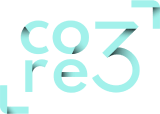Artificial intelligence (AI) is being used everywhere and the recruitment industry is no different. It’s a tool that can help recruiters and candidates identify opportunities, apply, and secure them. Over in IT, findings from an IBM survey in January 2024 showed that 42% of IT companies are using AI screening “to improve recruiting and human resources.” As AI reshapes recruitment, how do we ensure fairness and humanity remain at the core of hiring?”
The use case of AI in recruitment
AI offers unprecedented opportunities in recruitment and there are two common types currently being used:
Rules-based AI: A simpler form of AI that involves engines programmed to respond in specific ways to certain triggers. For example, AI software can scan CVs for keywords and then create an initial shortlist.
AI Machine Learning (ML): More advanced than rules-based AI, ML learns from data and finds patterns to understand outcomes. This could be programmes such as ChatGPT or more specific ML models that can analyse historical data to predict what makes a great hire, even examining subtle cues like facial expressions, body language, and tone of voice in video interviews.
AI tools can save hiring managers countless hours. But with great technological power comes great ethical responsibility.
A conscious recruitment philosophy
At Core3, our approach has always been about more than just filling positions. We’re committed to a holistic recruitment strategy that considers the well-being of candidates, clients, and the broader community. This means that while we embrace technological innovation, we never lose sight of the human beings at the heart of every hiring decision.
The human element in AI-driven recruitment
Technology should augment, not replace, human judgment. An algorithm can identify skills and potential but cannot replicate the nuanced understanding that comes from human interaction. AI is a sophisticated tool that helps us work more effectively. And that’s what we need to remember. It is a tool. It should not replace genuine human connection.
For instance, at Core3, we’re harnessing these tools to free up more time. Instead of wading through the day-to-day monotonous administrative tasks such as compliance, data integrity and summarising meeting notes, our team can prompt AI to complete these tasks, freeing them up to do what we do best; build relationships with people.
AI saves us hundreds of hours a month and lets us focus on the finer details that help people find jobs and help businesses build their teams.
The moral and ethical concerns in AI recruitment
One of the biggest challenges the industry faces when using AI is the potential for algorithmic bias. AI systems, particularly ML models, learn from historical data, which can be outdated and inadvertently unfairly disadvantage candidates. It’s important to reset data regularly to avoid such bias from occurring.
Ethical considerations for candidates using AI
While much of the focus of this blog has been on the hiring side, it’s equally important to consider the ethical implications of candidates using AI tools in their job search and application process.
Candidates are increasingly using AI tools to optimise their CVs, craft cover letters, and even prepare for interviews. While these tools can help candidates present themselves more effectively, they also raise ethical questions.
- Are they being authentic? There’s a fine line between enhancing one’s achievements and skills and misrepresenting one’s abilities.
- Are they playing fairly? Is using AI for job applications putting those who don’t use AI at an unfair disadvantage?
- Are they being transparent? Should candidates disclose their use of AI tools in the application process? This question becomes particularly pertinent when AI is used to generate substantial portions of application material.
The future of conscious recruitment
As AI continues to evolve, so must recruitment’s approach to AI’s implementation. With employers and candidates increasingly using AI, we risk creating an “AI arms race” in recruitment. This could lead to a scenario where all the things that make a person unique and ‘them’ become so generic and predictable. How many posts have you seen on LinkedIn that all start with the same few words – a total giveaway that they’ve been generated with AI.
We need to create a future where technology and human insight work in perfect harmony, where AI enhances our ability to make meaningful connections rather than replacing them. This might involve more sophisticated ML models that can better understand the nuances of human communication or AI systems that help identify potential in candidates who might be overlooked by traditional recruitment methods.
One thing’s for sure, Core3 remains committed to ensuring that these technological advancements always serve to enhance rather than replace the human element in recruitment.
While AI can certainly speed up and enhance recruitment processes, we believe it should never come at the expense of ethical hiring or authentic candidate representation.
Do you think using AI to apply for and secure a job is ethical? Is it just another tool like using a spellchecker on Word? Let us know your thoughts.
You can read more about how AI is shaping the finance industry in our recent blog “AI and the changing face of finance” or why not take our hiring health check questionnaire to find out how ready you are for your next role?





